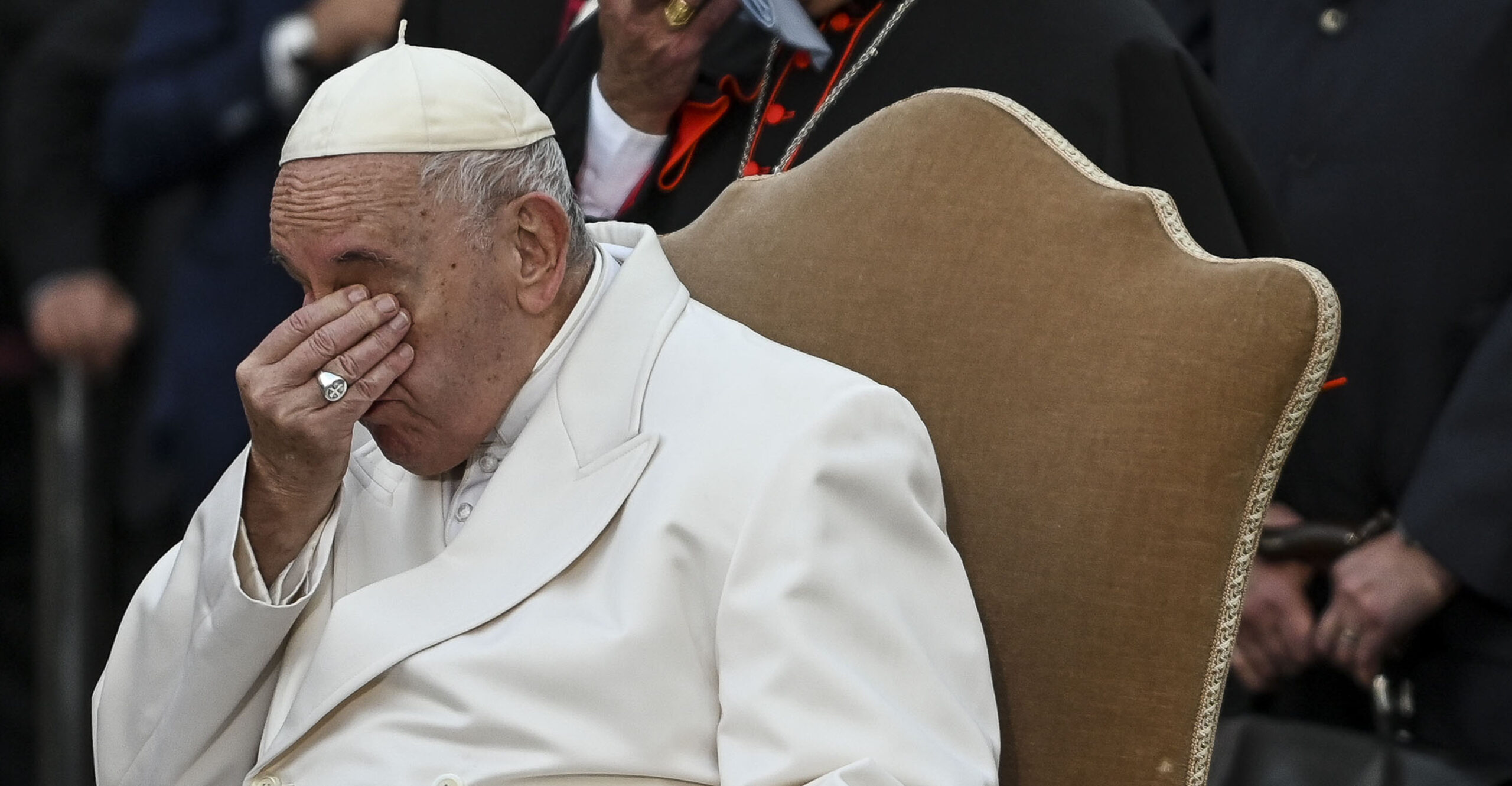Is the Pope’s environmentalism the Catholic failure?

The Pope's ecological battle welcomes, together with many religiously based reasons such as respect for creation, some ideological veins. The opinion of Battista Falconi
Pope Francis – it is said with the utmost respect – has some "fixes", themes to which he returns with particular frequency. Migrants, to whom he recommends the utmost welcome, peace in Ukraine, the criticism of clericalism and of course environmentalism, for which much has been spent, up to the announcement of an update of his encyclical "Laudato sì" . These are understandable battles, even for those who don't share them, but they are indications of an inevitable partiality.
Hospitality and tolerance are undoubtedly part of the Christian charitable baggage, however they must be reconciled with geopolitical assessments for which opening up to the less fortunate who come to our door may not be as ethically valid as it appears. Yesterday a clash took place in this regard between Schlein and Meloni. The exercise of power in the worst sense of the term by the clergy probably still exists, but it certainly no longer has the relevance it once had. Peace in Ukraine is desirable if balanced with respect for international law. And then, why make it the only object of appeal when so many other conflicts are taking place on our planet, for example the bloody persecutions of Christians in Africa and Asia? Even the ecological battle welcomes, together with many religiously founded reasons such as respect for creation, some ideological veins of which Bergoglio does not seem to be fully aware.
It will be said that they are inevitable limits, none of us proposes impeccable arguments, the human being is by nature imperfect. The problem arises when this human being is also the head of the Catholic Church, whose appointment should take place under the inspiration of the Holy Spirit and therefore be guaranteed of superhuman superiority. This truth of faith, to which many exceptions taken from history could be opposed, which lead us to the second and more relevant problem: the progressive loss of Catholicism understood as universality.
Even the popes of the past have interpreted their mandate conditioned by the historical contingency in which it took place. A first phase saw the popes and the whole Church discuss predominantly Christological and theological issues, in an attempt to affirm those truths of faith which would then be transmitted to the following centuries and which determined the identity autonomy of Christianity: first of all respect to Judaism, from whose roots it grew, and then between the various confessions, which have torn apart over issues that appear more abstract to our secular and modern eyes than the angelic sex. But this is precisely the most coherent and universal phase in the history of the Church which, in the following centuries, passed into the hands of some noble families from the Capitoline, Lazio and Italian regions, losing much of its ecumenical spirit to concentrate on more minute geopolitical disputes. Always proceeding by centuries-old leaps, we arrive at the modern age, in which the greatest concern of the Church has seemed to be the moral one, establishing what is good or bad in relation to the behavior of human beings.
Certainly today the Church is no longer an interpreter of transcendence who truly speaks to the whole world. It is an agency that carries out a spectrum of actions, from solidarity to diplomacy, contingent and generalist, while its credit in terms of otherworldly salvation or the affirmation of a divine truth is reduced to a flicker. The figures tell us so, especially in the West. So much so that the clergy and the Holy Father himself have renounced proselytism, relegating him to a politically incorrect legacy.
To this process, which much precedes him, Francesco adds some of his partialities, if we don't want to call them distortions, of optics, due to his personal story, to his geographical origins. A pope who comes from the end of the world, as he himself defined himself, cannot have a truly global vision, as would happen to anyone else, and ends up pleasing above all those who are not Catholics and even more those who are not not even Christians. Let's say that as CEO of your company, the balance sheet – faithful, practitioners, vocations – is rather disastrous.
It is the opinion of someone that, due to an only apparent paradox, the Church will be able to recover its catholicity and its universality precisely when this minority character towards which it has moved is fulfilled in full acceptance. No longer having to worry about keeping large secularized and varied audiences together could help the recovery of that primitive spirit with which the apostolic community of the first centuries tried to manifest itself to the world.
This is a machine translation from Italian language of a post published on Start Magazine at the URL https://www.startmag.it/mondo/lambientalismo-del-papa-e-il-fallimento-cattolico/ on Thu, 24 Aug 2023 07:23:05 +0000.
